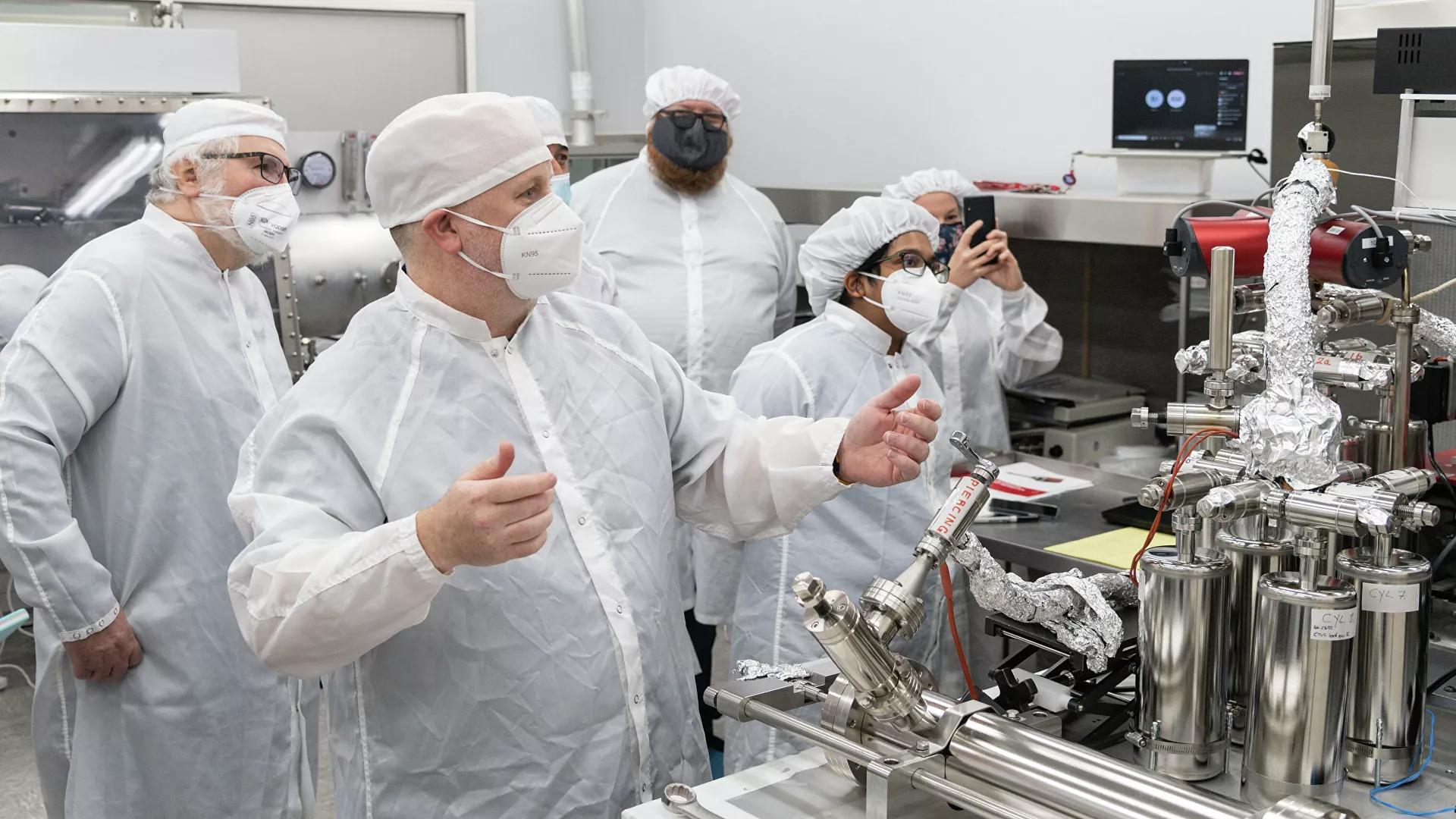Africa-Press – Liberia. Work on the “new” old samples from the Apollo era is being led by the Apollo Next Generation Sample Analysis (ANGSA) programme in a bid to know more about the lunar surface before new missions to Earth’s natural satellite. NASA decided to unseal never-before-opened Apollo-era lunar samples in order to prepare for a future return.
The samples were opened at NASA’s Johnson Space Center in Houston by the Astromaterials Research and Exploration Science Division (ARES). The reason for waiting so long is that NASA wanted technology to improve before studying the samples, and it appears that the time has finally come.
The ANGSA programme was designed specifically to examine the “unopened and pristine” lunar samples. Back in 1972, astronauts Eugene Cernan and Harrison “Jack” Schmitt collected an Apollo 17 drive tube sample. They hammered a pair of connected 1.5-by-14-inch tubes into the lunar surface to collect segments of rocks and soil. Before bringing the samples back to Earth, the astronauts vacuum-sealed one of the drive tubes.
Only two drive tubes were vacuum sealed on the Moon, according to NASA. This is the first one to be unsealed. The samples could also contain volatiles (substances that evaporate at normal temperatures, like water ice and carbon dioxide), so the scientists were “excited” to try and extract the gas from them.
After five decades of waiting, NASA has obtained the necessary equipment to extract and collect the gas. The device is called a manifold: it can pierce the container holding the lunar sample without letting any gas escape.
The scientific team began the gas extraction from the tube holding the sample in mid-February. It’s a long process: first, the scientists need to open the outer protective tube and make sure that any gas inside it is captured, and then proceed to pierce the inner container in search of any lunar gas that hopefully remains there. After the gas extraction – likely later in the spring – the team will move on to explore the soil and rocks from the container.
For More News And Analysis About Liberia Follow Africa-Press






